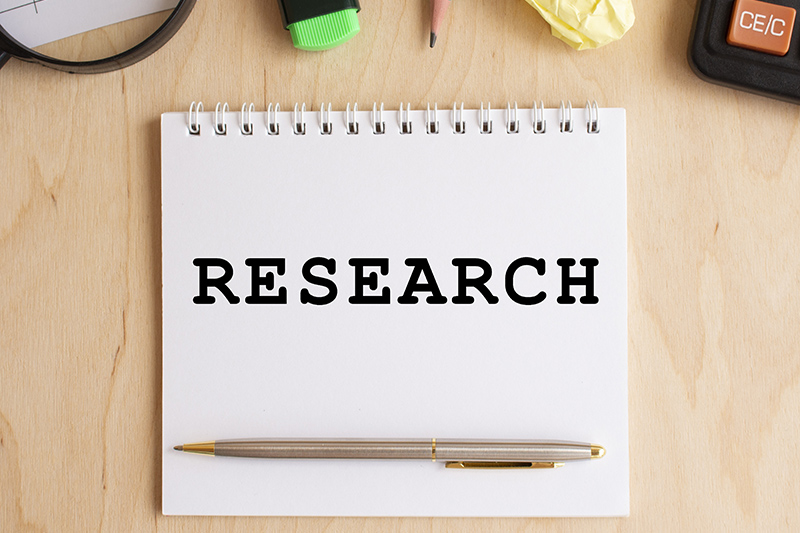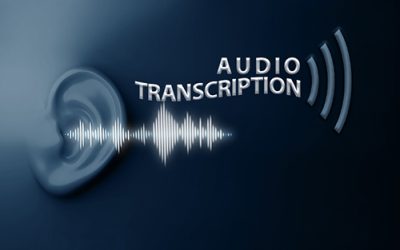Research is a time consuming activity. It begins with a hypothesis or question followed by collecting data and analyzing it, and compiling the results to arrive at a sound conclusion. Research transcription is generally useful for all activities that require recording audio and video content. Research transcription agencies can convert digital recordings of interviews, meetings, focus groups, and other interactions into written documents, making it easier for researchers to correctly analyze and interpret the data collected.
There are two types of research data – quantitative and qualitative. Quantitative data comprises data that can either be counted or compared numerically, qualitativedata relates to qualities or characteristics. Qualitative data is narrative and subjective in nature, and collected through interviews, focus groups, etc., and cannot be measured and expressed in numbers. The audio recordings need to be transcribed and then analyzed using qualitative data analysis techniques, such as thematic analysis or content analysis.
Let’s take a look at the fields that can benefit from research transcription.
Four Fields that require Research Transcription Support
Any type of research activity that involves recording audio or video data usually requires research transcription services to support qualitative data analysis.
Market Research: Companies conduct direct market research to understand consumers and expand their reach. The process involves using methods such as surveys, questionnaires, focus groups, and in-depth interviews along with transcription services to collect information and understand a specific target audience. Market research is used to test the viability of a new product or service by communicating directly with a potential customer. This enables companies to gauge their target market and get opinions and feedback from consumers in real-time. Transcribing these discussions can help researchers to recognize common themes and opinions among the participants.
Academic Research: Transcription support helps academic researchers who use qualitative research methods to collect data from participants. The following qualitative research methods are used in sociology, anthropology, political science, psychology, educational research social work, folklore, and software engineering research:
- Observations:recording what the researcher sees, hears, or encounters in detailed field notes
- Interviews:one-on-one conversations to personally ask people questions
- Focus groups: generating discussion among a group of people by asking questions on a particular topic
- Surveys: collecting data via questionnaires with open-ended questions
- Lectures and seminars: collecting data from recordings of lectures, seminars, and other presentations
Researchers also may observe participants in classrooms and other natural settings. Transcribing these observations can help spot behavioral or communication patterns.
Transcribing the recordings of these activities allows researchers to analyze the content and identify key concepts, patterns and themes.
Medical Research: Clinical research, including pharmaceutical research, is the basis of modern healthcare. After discovery, all medications, treatments, tests and other aspects of care are thoroughly evaluated before they can be put into practice. Transcription services are useful for clinical trial interviews, patient interviews, focus groups, group discussions, in-depth interviews, and audio recordings of medical reports or surgical procedures. Transcribing clinical trial data can help researchers to better understand and analyze the results of their studies, and also identify areas for further study. Transcription services are used to transcribe medical notes, such as physician notes or patient medical histories for electronic health records, which can improve patient care and support medical research.
Legal Research: Lawyers conduct legal research to identify and find statutes, regulations, and court opinions that apply to a case they’re handling. This will enable them to back up their arguments they are making in a motion or brief filed with the court. Lawyers may also conduct legal research to provide clients with correct legal advice. Transcription helps legal research in various ways:
- Provides a verbatim record of what in court proceedings, depositions, hearings, etc., for reference and analysis
- Transcripts of interviews with witnesses, clients, or experts can help lawyers in case preparation and identify areas for further investigation
- Transcribing handwritten research notes or audio recordings of research to organize and analyze the data more efficiently.
- Documents that are not legible (such as handwritten or poorly scanned documents) can be transcribed.
Research transcription services improve the accuracy and quality of data and help researchers capture more value from their recorded audio and video, while saving time and effort.
Steps in Research Transcription
Research transcription is a key process in research as it helps researchers to analyze and interpret the data they collect. It involves the following steps:
- Using specialized recording equipment to produce a high-quality digital audio/video recording of the interview, focus group, meeting, or other research activity.
- Taking steps to ensure that the audio is clear, such as recording in a quiet setting or using a tool to remove background noise before or after recording, choosing the right microphone, minimizing echo, etc.
- Listening to the audio to identify the speakers, understand the conversation flow of the conversation, making note of terms that are difficult to understand and getting them clarified.
- Using the right transcription tools, including noise cancelling headphones and transcription software.
- Producing the written text from the audio recording — making a draft, editing the draft to ensure accuracy, and formatting and finalizing the transcript.
If the transcription is done using speech recognition software, the automated transcript will need to be manually reviewed to ensure accuracy.
Outsourcing Research Transcription saves Time and Effort
Transcription is clearly a time-consuming process that requires considerable effort to complete with utmost accuracy. Several factors impact transcription time and it can take anywhere from 3 to 10 hours to transcribe one hour of recording. For researchers, the ideal option would be to outsource transcription. Professional digital transcription services can save researchers valuable time and resources. Benefits of reaching out to an expert include:
- Eliminates need to re-listen to the recordings to clarify information
- Accurate transcripts in fast turnaround time
- Searchable transcripts to quickly locate any information in the transcript using relevant terms
- Accessible, easily archived and shareable transcripts
- More time to focus on research activities
- Confidentiality of data
- Quality services at affordable rates
Once researchers receive accurate transcripts, they can analyze them to detect patterns, themes, or categories within the data, and obtain valuable insights into the research question or topic at hand.
Looking for affordable transcription services? Look no further! We transcribe your audio files with a fast turnaround time and at competitive prices.
Call us @ (800) 670-2809 to get your free trial today!!




